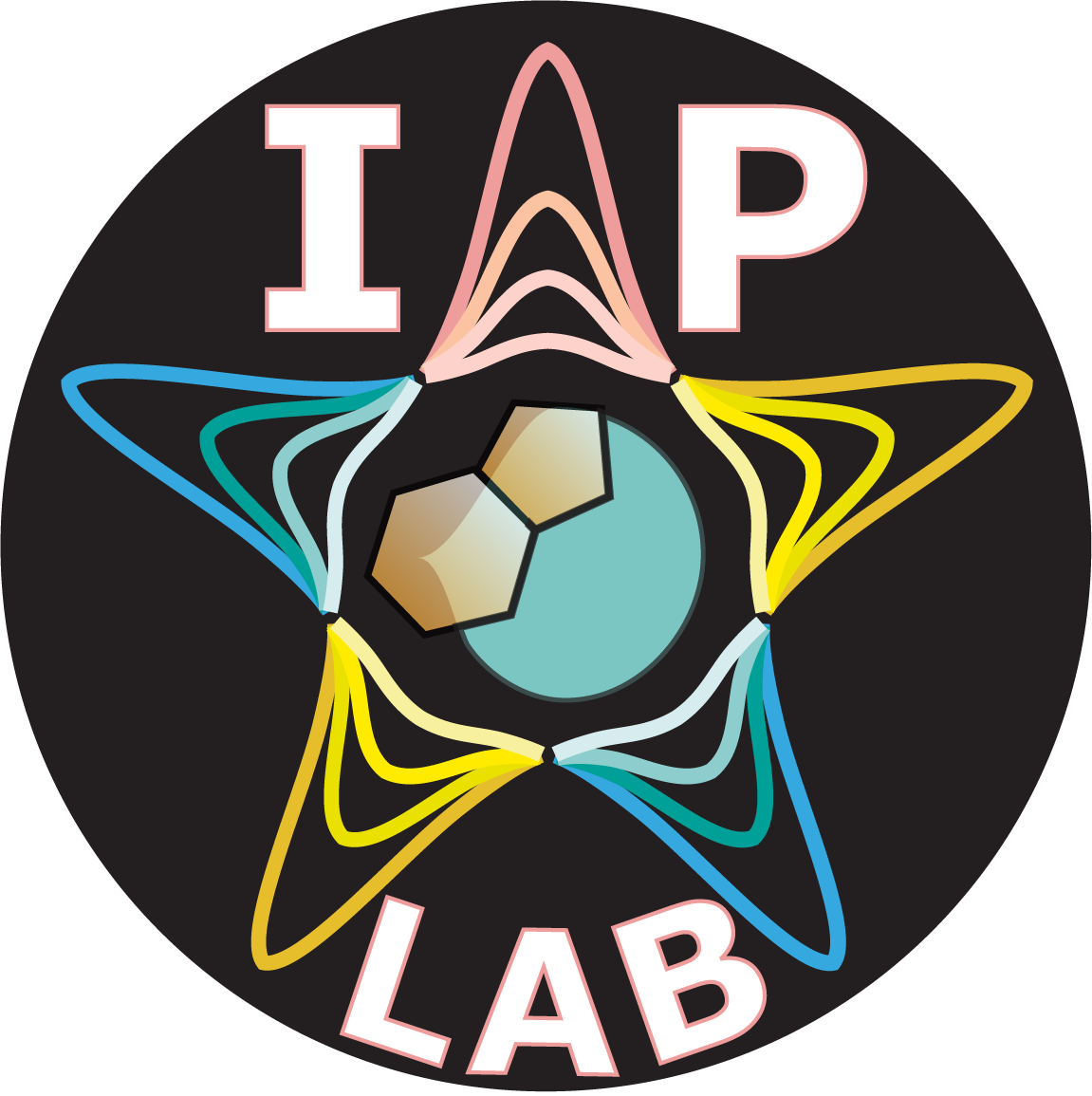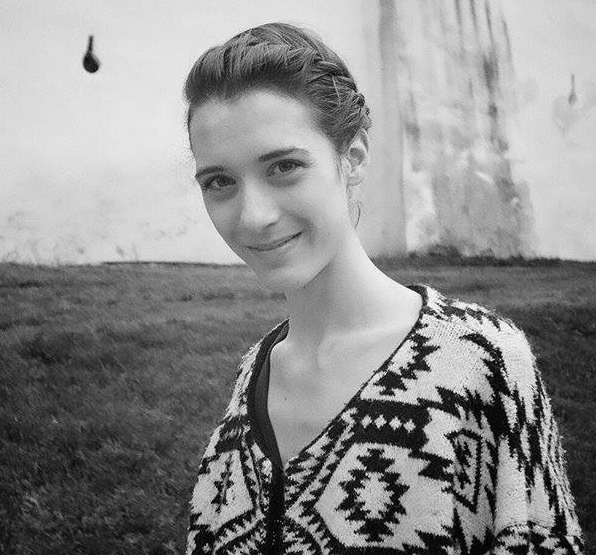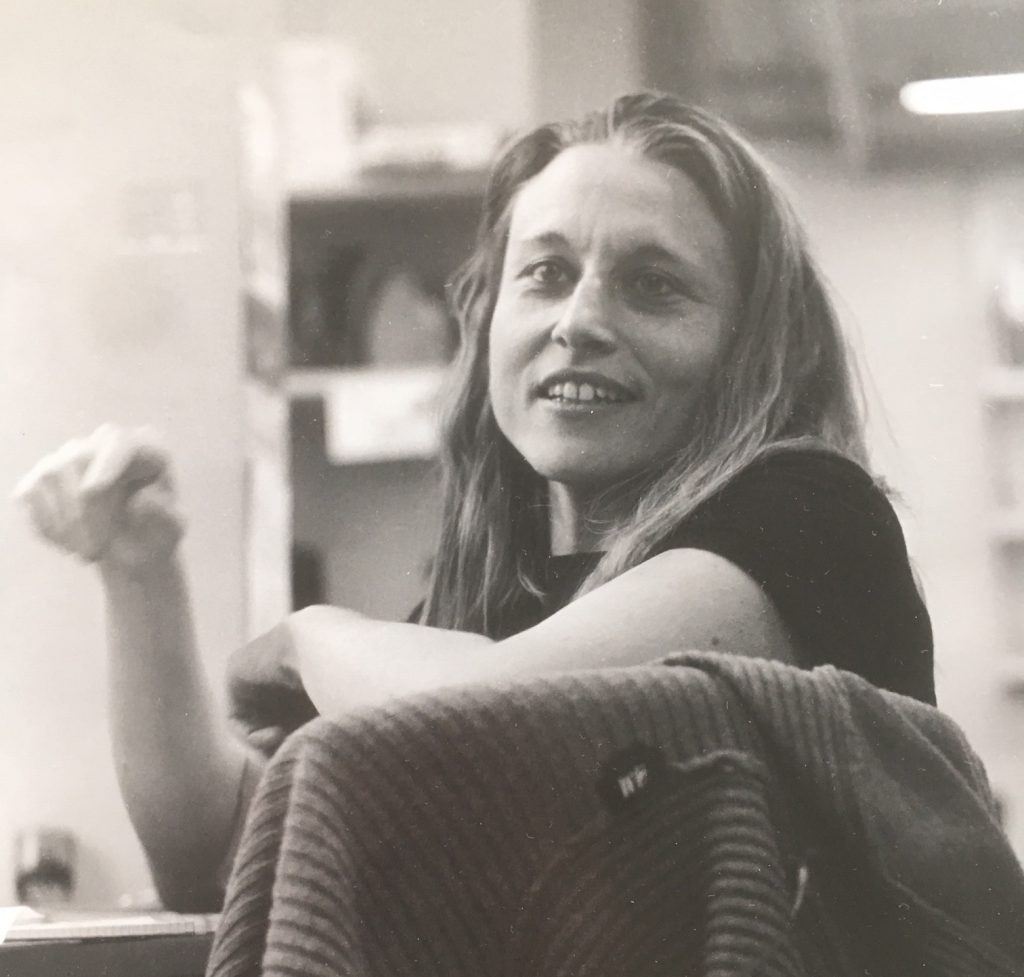
Photo credits: Sebastian Steiner (unofficial IP lab photographer)
ILARIA PIAZZA
Short CV
September 2020: Principal Investigator, Helmholtz Young Investigator,
Max Delbrück Center for Molecular Medicine, Berlin, Germany.
2019-2020: Visiting senior scientist,
Biognosys AG, Schlieren, Switzerland.
2014-2019: Post-Doc, Picotti lab,
ETH Zurich, Switzerland.
PhD, EMBL and University of Heidelberg, Germany.
2009-2014: Pre-Doc, Häring lab,
EMBL Heidelberg, Germany
2008-2009: Research assistant,
University of Cambridge, U.K.
about ilaria
My adventure with my scientific research seriously started with my PhD studies at EMBL in Heidelberg, There I embarked on a project studying the molecular machines regulating chromatin structure and gene expression during the cell cycle using yeast genetics, cell and structural biology. During my PhD I also stumbled into crosslinking mass spectrometry in the Beck laboratory. This brought me to study protein structures with a -omics perspective in at ETH Zurich and later at Biognosys. Now, the goal of my research as group leader is to study how metabolism regulates chromatin architecture and its impact on gene expression using proteomics, genomics and metabolomics.
Outside the lab other kinds of machines and problems bigger than mass spectrometers catch my attention. I read avidly about aviation and space exploration . My element is water, so my favorite sport is swimming.
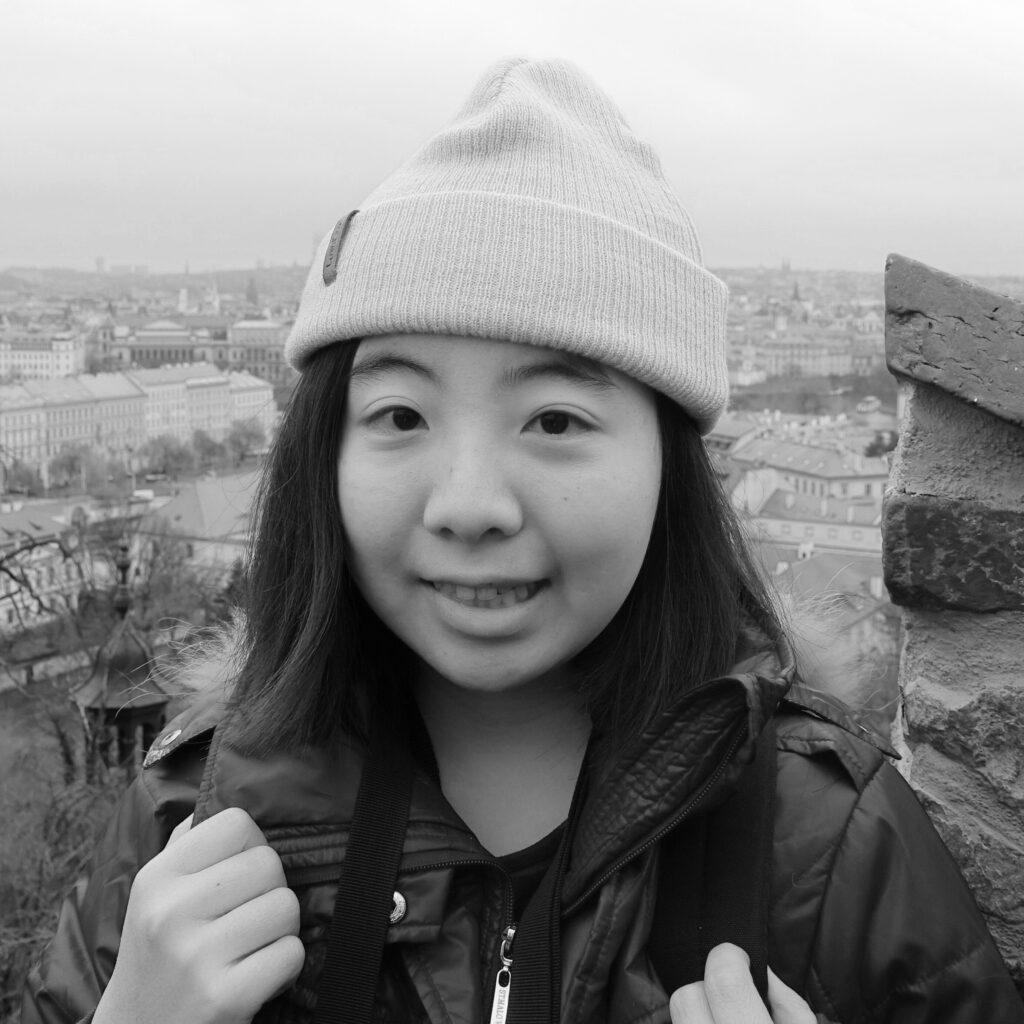
YUN-HSUAN HUANG
Short CV
Jan. 2022: PhD student, Piazza Lab, Max Delbrück Center for Molecular Medicine, Germany
Sep. 2021: MSc, Molecular Bioengineering, Technical University of Dresden, Germany
Apr. – Sep. 2021: Master’s thesis, Pisabarro Lab, Technical University of Dresden, Germany
about YUN
Yun has long been interested in protein structures and functions as she started her academic journey in biochemical science and technology. Following her interest in studying proteins, she expanded further experience in wet lab and dry lab during master. She first studied the biochemical activities of membrane proteins under different solubilization environments in Fahmy Lab of Helmholtz Zentrum Dresden Rossendorf. Then she switched to in silico side to complete the master’s thesis in Pisabarro Lab of TU Dresden. She performed structure-based virtual screening on cell cycle regulators to preliminarily filter out the candidate molecules for drug development.
Now in IP lab, she wants to explore the structures and interactions of proteins in a further global view, utilizing both experimental and computational approaches.
Music makes her day, so she plays piano and guitar often. Mountains and sea recharges her beyond the working time.
ELIšKA FüRST
Short CV
September 2020 – present: PhD student, Piazza laboratory.
Max Delbrück Center for Molecular Medicine, Berlin, Germany.
July 2020: Master in virology.
Charles university, Prague (Czech Republic)
about ELIška
Eliška studied molecular biology and biochemistry and continued with virology at the Charles university in Prague. Despite coming from a family of chemists, Eliška got fascinated by diseases and medicine after reading a book about ‘viruses in the 21st century’ written by her future bachelor’s thesis supervisor. She worked on the characterisation of Zika and Dengue proteases and their inhibition in the laboratory of Jan Konvalinka at IOCB in Prague. As part of her studies Eliška, also spent 7 months at Karolinska Institutet in Sweden in the laboratory of Nico Dantuma working on the inhibition of the ubiquitin-proteasome system. Now in the IPlab, Eliška wants to switch her view on the inner life of the cell and study cellular processes in a more complex, system biology-based way!
Apart from science, Eliška studied viola playing on a conservatory and played in different Czech and Swedish orchestras. Her other great passion is long-distance running and ultramarathon distance.
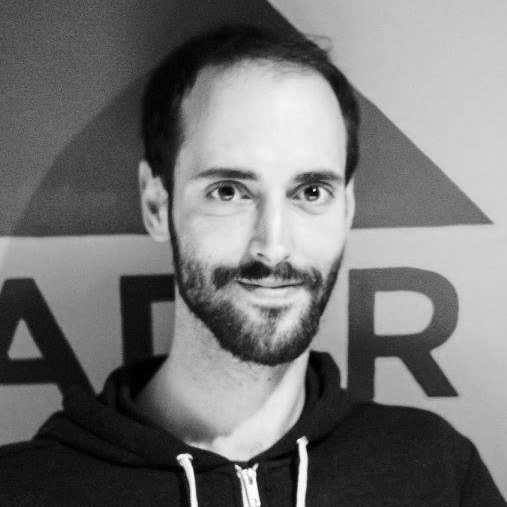
Claudio Bassot
Short CV
August 2021: Bioinformatician, Piazza laboratory. Max Delbrück Center for Molecular Medicine, Berlin, Germany
2017-2021: Post-Doc, Prof Arne Elofsson Group, Stockholm University, Sweden
2014-2017: PhD Student, Prof. Paolo Bernardi and Silvio Tosatto, University of Padua, Italy
2013 September: Master in Pharmaceutical Biotechnology, University of Padua, Italy
2013: Master Thesis in Erasmus, Prof. Carola Hunte Group, University of Freiburg im Breisgau, Germany
ABOUT CLAUDIO
From his undergraduate studies, Claudio was fascinated by proteins. He had his first taste of science during his master thesis in structural biochemistry. But it was during his PhD that Claudio realized that he was more interested in tackling biochemical problems from a bioinformatics perspective and left the lab bench for the computer. Bioinformatics leads Claudio to a postdoc in Sweden at Stockholm University in the group of Prof. Arne Elofsson. There he worked with contact prediction and ab initio-protein modelling on repeats and transmembrane proteins gaining expertise in structural bioinformatics.
Now in IPlab Claudio wants to broaden his view by doing research at the proteome scale.
In his free time, Claudio likes to practice sports especially hiking, skiing and fencing and he is also passionate about history.
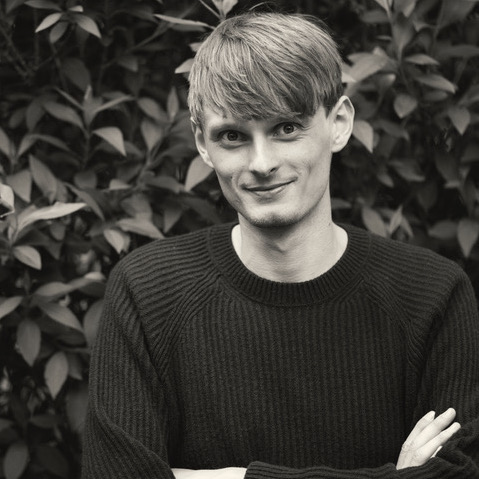
MAXIMILIAN HORNISCH
Short CV
June 2021: PhD student, Piazza laboratory.
2020: Master’s thesis, Küster laboratory, Technical University of Munich, Germany.
December 2020: Master in Biochemistry, Technical University of Munich, Germany.
about maximilian
Maxi has always been fascinated by nature and the endeavor of obtaining a deeper understanding of biology. Thus, he studied biotechnology and biochemistry.
During his bachelor thesis – that he conducted in the lab of Albert Jeltsch – Maxi got interested in epigenetics. He worked on elucidating the enzymatic properties of the DNA methyltransferase 1 and is still very excited about DNA methylation today. While he pursued his master studies, Maxi took several opportunities to gain insights in different research fields: He spent half a year at the Karolinska Institute in the group of Simon Elsässer, where he used synthetic biology and MINUTE-ChIP to study the biology of the histone variant CENPA. Moreover, he carried out several short research internships in cell biology, NMR spectroscopy and chemical biology. Finally, he got especially intrigued by proteomics when he was working in the lab of Bernhard Küster for his master thesis. During the next couple of years, Maxi seeks to employ structural proteomics methods to unravel the entanglement of metabolism and gene expression.
Besides science, Maxi is fond of nature in general. He likes to spend time outdoors, hiking, cycling, or searching for animals that he photographs from time to time.
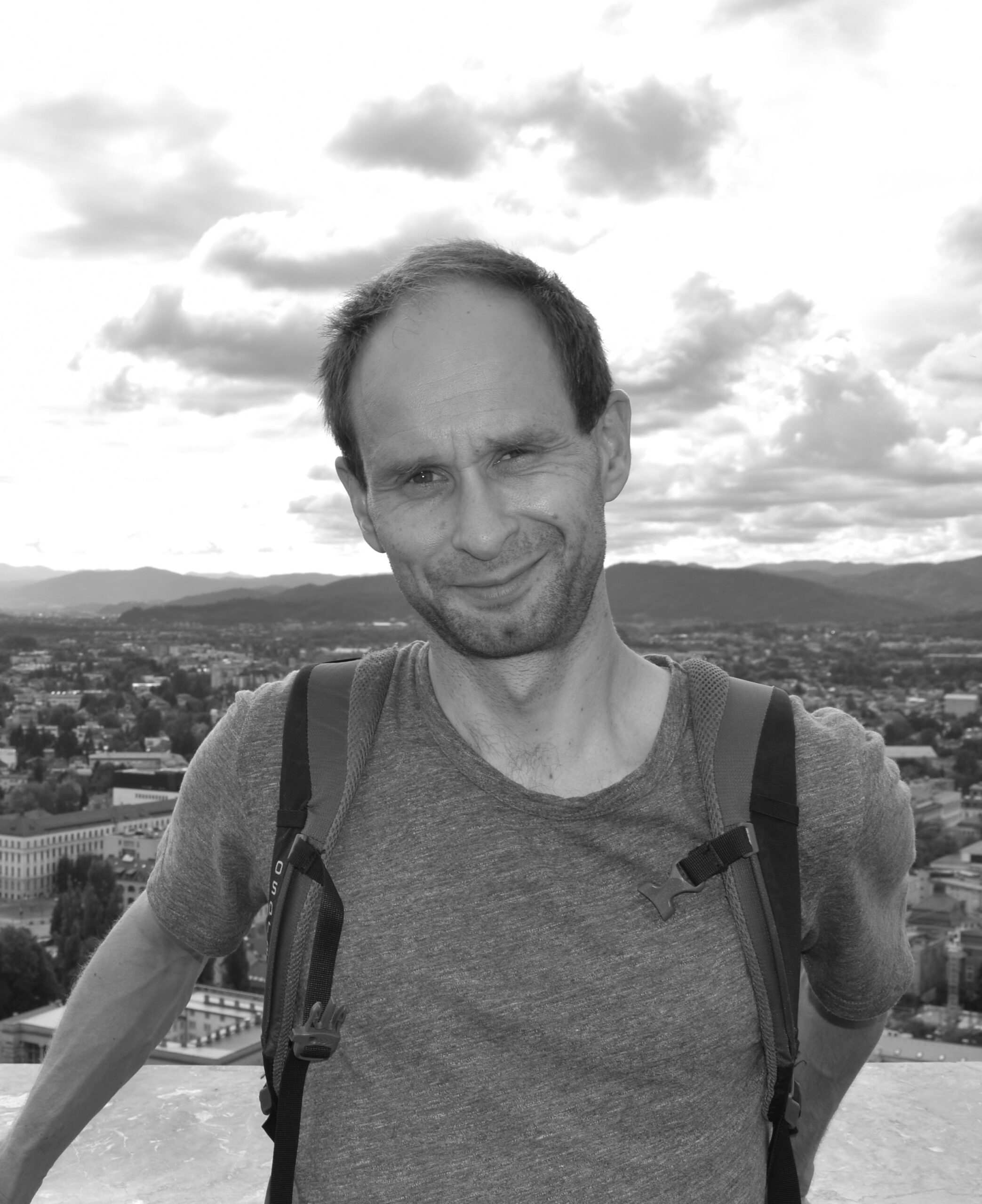
Tomas Koudelka
Short CV
Apr. 2022 – present. Post-Doc. Lab manager – MS specialist, Piazza Laboratory
Oct. 2017- Mar. 2022. Post-Doc. Institute for Experimental Medicine, Kiel, Germany
Sep. 2015 – Sep. 2017. Research Scientist. Proteomics International, Perth, Australia
Jan. 2012 – Aug. 2015. Post-Doc. Institute for Experimental Medicine, Kiel, Germany
Jul. 2010 – Dec. 2011. Post-Doc. Adelaide Proteomics Centre, Adelaide, Australia
Feb. 2006 – Jul. 2010. Ph.D in Chemistry, University of Adelaide, Australia
ABOUT TOMAS
While studying protein structure, aggregation and misfolding during his PhD. Tomas got his first taste of mass spectrometry while using limited proteolysis to identify the particular part of kappa-casein, a milk protein, that can form amyloid fibrils. This led to a change in focus and interest into the exciting world of MS and proteomics. He has worked in both Research and in Industry, and spent 8 years as part of a Collaborative Research Centre 877, in Kiel, Germany identifying protease cleavage sites, protease substrates and therefore protease function. His main research interests are protein analytics and N-terminomics. He plans to use his experience with LC-MS in the Piazza lab to optimize methods and improve the proteomic coverage of LIP-MS.
When not playing with LC and MS machines he enjoys cycling, rock-climbing and running.
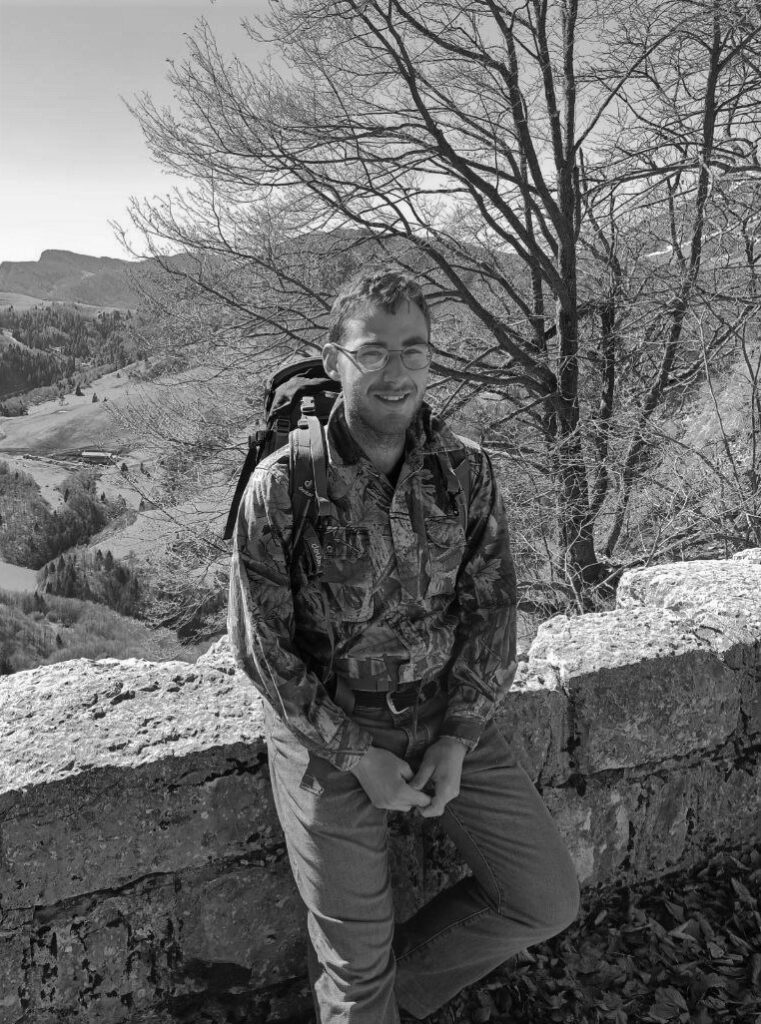
DAMIANO TOSOLINI
Short CV
May 2022: PhD student, Piazza laboratory.
University of Udine in Italy
ABOUT DAMIANO
Damiano has completed his undergraduate studies at the University of Udine in Italy, where he realized that a comprehensive view of biology has to be multifaceted and it must be kept in mind that the complex systems arise from molecular shapes and contacts. For this, he was fascinated by biomolecular condensates which go beyond the paradigm of membranes: thus he carried out his master thesis and a pre-doc internship about this topic. However, until then, all of his studies involved mostly bioinformatics, general molecular biology and microscopy while now he wants to delve into molecular details of cellular factors, even approaching technologies completely new to him. To this end, he joined the IPlab where his research will focus on disordered structures of proteins.
Damiano forged his passion for outdoor activities in eastern Alps and mostly loves hiking and camping. Recently, he has discovered cyclo touring, and now he is looking forward to have wonderful trips around Berlin.
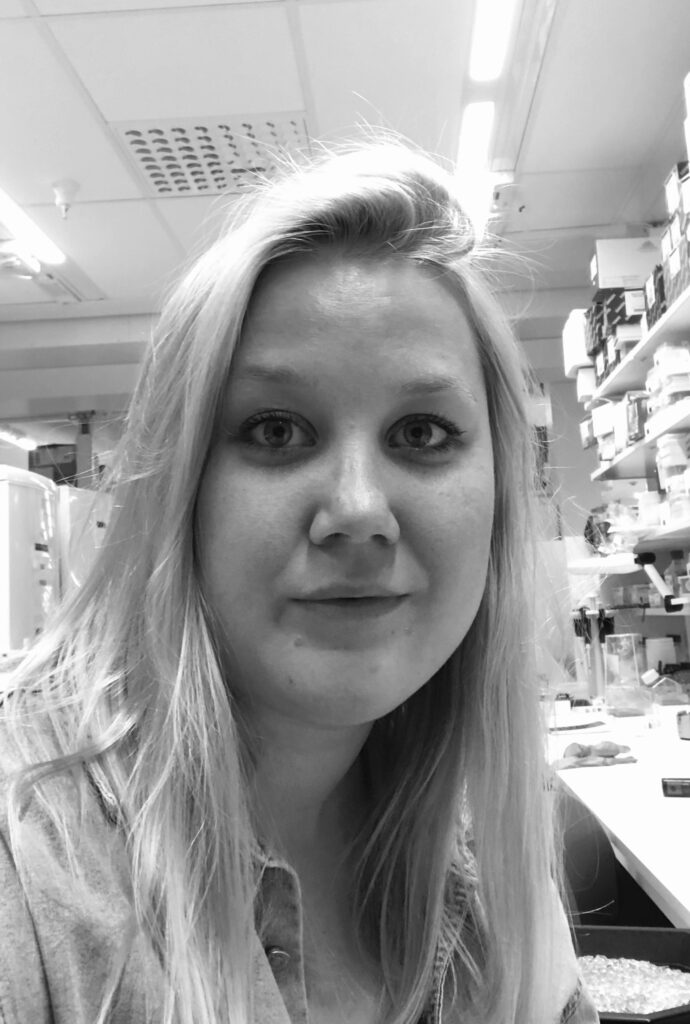
MANDY MEIJER
Short CV
September 2022: Postdoc, Piazza lab, Max Delbrück Center for Molecular Medicine, Berlin, Germany
January 2016 – June 2022: PhD student, Castelo-Branco lab, Karolinska Institutet, Stockholm, Sweden
September 2013 – December 2015: Master in Molecular Neuroscience, University of Amsterdam, The Netherlands
ABOUT MANDY
Mandy studied molecular neuroscience at the University of Amsterdam. During this period, she got really interested in gene regulatory mechanisms and how to investigate them with different techniques. She therefore joined the lab of Gonçalo Castelo-Branco at the Karolinska Institute in Stockholm for her PhD. There she studied gene regulatory mechanisms in oligodendrocytes, which is a cell type in the central nervous system affected in the disease multiple sclerosis. She used different methods such as single-cell ATAC-seq, RNA-seq and multiome profiling to better understand how a disease environment can affect chromatin and gene transcription. Now in her postdoc in the IP lab she would like to continue investigating gene regulatory mechanisms and this time how the cellular environment can affect chromatin and gene transcription through metabolism. She hopes to learn more about proteomic methods as well.
In her free time, she really enjoys hanging out with her dog and going on hikes, she also enjoys wine-tasting combined with eating lots of cheese and going on road-trips visiting places with great nature.
